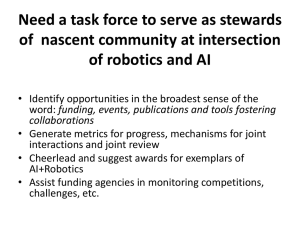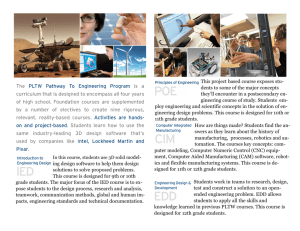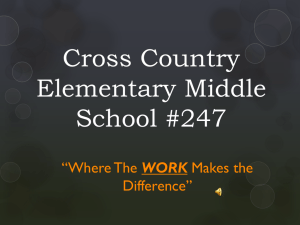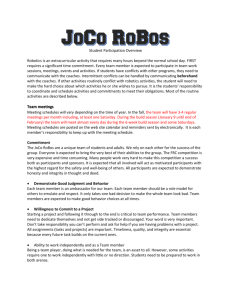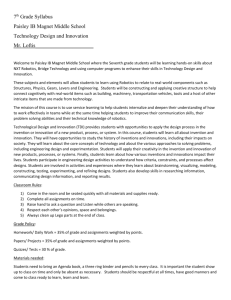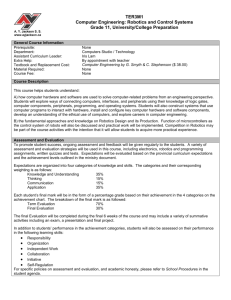Woburn Creativity - Massachusetts Department of Education
advertisement
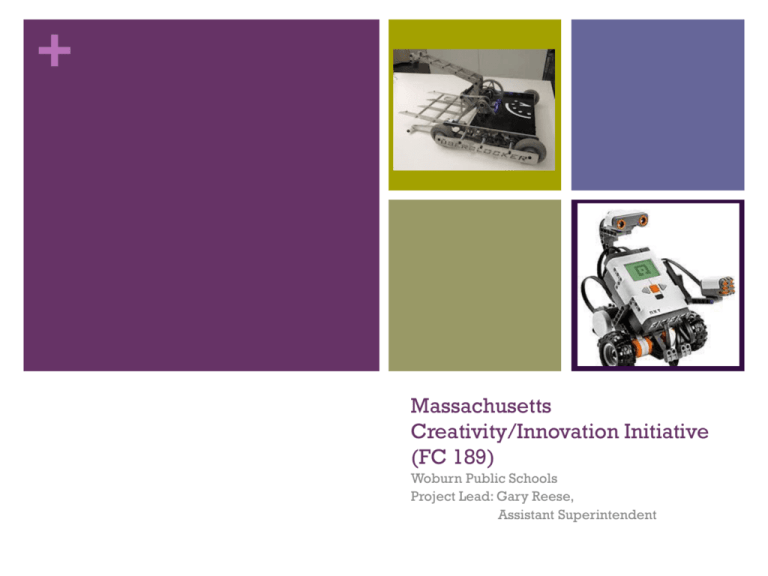
+ Massachusetts Creativity/Innovation Initiative (FC 189) Woburn Public Schools Project Lead: Gary Reese, Assistant Superintendent + Curriculum Titles Robotics and the 4 C’s: Critical Thinking, Communication, Collaboration and Creativity (High School Curriculum) Rethinking Legos: Building a Better Robot (Middle School Curriculum) * * Adaptation of WeDo Robotics Curriculum posted on Contextual Learning Portal + Curriculum Goals • To foster creativity, critical thinking and capacity for innovation • To provide students with a greater understanding of STEAM, and to promote increased interest in students to pursue post secondary instruction and careers in the field of technology and engineering • To increase opportunities for hands-on learning for our students + Collaboration with outside resources Potential Professional Development Providers Wicked Cool for Kids (Stoneham) Potential Outside Partners National Robotics League Boston Tooling and Machining Association Artisan’s Asylum (Somerville) Boston Tooling and Machining Association (Haverhill) Local higher education institutions Carnegie Mellon Robotics Academy (Online trainings) Local technology organizations Lego Education Local school districts General Grant Timeline February 2015 • Initiate contact with outside partners and professional development providers • Teachers to attend local trainings in the implementation of robotics program February – • Development of proposed curriculum (including upload to Contextual Learning Portal) May 2015 • Pilot program with students May – June • Make adjustments to curriculum as deemed necessary 2015 Evaluation and Performance + Measures Design Phase Anticipated Outcome(s) of Design Phase Additional course offerings for students at both levels in the field of STEAM Implementation of proposed curriculum, adjusted according to student and community partner feedback How will it be measured? By When? Completion of course curriculum and course offering at middle high school level Students will complete surveys and respond to questions about ways to improve program. February, May and June 2015 Community partners that are participating in the implementation phase will provide feedback and support to adjust the program. Measured by updates to curriculum on Contextual Learning Portal May and June 2015 Evaluation and Performance + Measures Implementation Phase Anticipated Outcome(s) of Implementation Phase Increase in the number of students pursuing STEAM careers Increase in the number of students passing Science MCAS How will it be measured? Baseline # and/or % (Students) Target # and/or % (Students) By When? Review of number of students that identify a STEAM career in their choice of colleges and intended area of study (Senior Exit survey) Science MCAS results from DESE To date, data has been anecdotal regarding # of students. This year’s exit survey will better reflect actual %. Increase % of students by 3% from 2015 survey to 2016 survey data. June 2015 2014 results 2015 results August 2015 41% proficient or higher (grade 8) 3% improvement 66% proficient or higher (grade 10) 2016 results 5% improvement June 2016 August 2016 + “It is better to have enough ideas for some of them to be wrong, than to be always right by having no ideas at all.” Edward de Bono Maltese Physician, author inventor, and consultant
